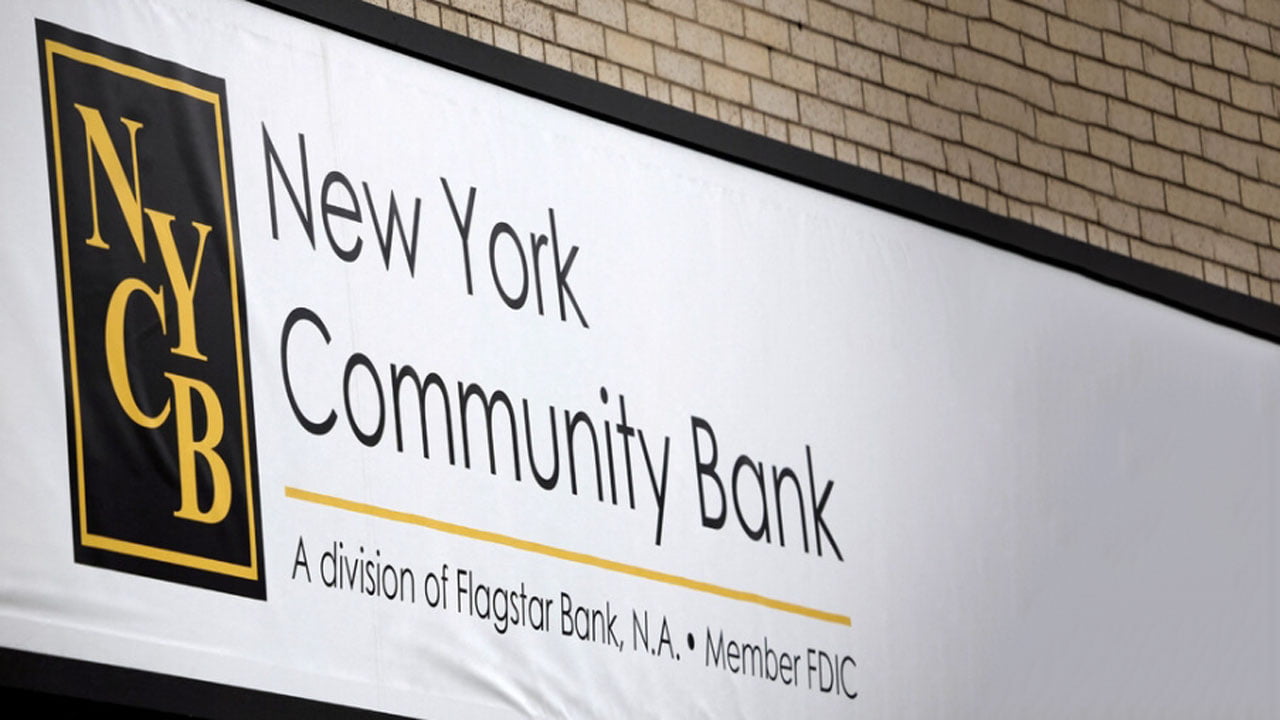New York Community Bank Stock Price Plunged 22%

New York Community Bank stock price plunged 22%… A precursor to a commercial real estate banking crisis?
The stock price of New York Community Bancorp (New York Community Bank), a local bank in New York with about 400 stores, fell more than 22% in one day. Concerns are growing about the insolvency of U.S. banks due to the slump in the commercial real estate market.
On the New York Stock Market on the 6th, New York Community Bank’s stock price fell 10.8% on the 5th, followed by another plunge of 22.2% on this day. After the earnings announcement was made on the 31st of last month, the bank’s stock price fell as much as 59%.
The selling of New York Community Bank stock began when the bank announced that it recorded a loss of $252 million (approximately 333.5 billion won) in the fourth quarter of last year. As non-performing loans rapidly increased, loan loss provisions soared from $62 million in the previous quarter to $552 million, resulting in a large loss. On the 6th, credit rating agency Moody’s lowered the bank’s credit rating to ‘junk’, meaning unsuitable for investment.
New York Community Bank also owns brands such as Flagstar Bank and Ohio Savings Bank and operates about 400 branches in the United States. Last year, it expanded its size by acquiring the bankrupt Signature Bank.
The reason the bank was in crisis was because the commercial real estate market slumped in the aftermath of COVID-19 and bad loans worsened. Due to the COVID-19 incident, companies have increased ‘work from home’ and the ‘vacancy’ of commercial real estate in major U.S. cities has increased rapidly. As a result, the number of non-performing loans taken out by banks that lent money to them has also increased significantly. In addition, interest rates are rising, making it more difficult to recover loans. Meanwhile, news of the resignation of the chief risk officer and chief audit executive also raised doubts about the bank.
Concerns about the insolvency of New York Community Bank are also making the U.S. government nervous as it revives memories of the serial bankruptcies and closures of local banks such as Signature Bank, First Republic Bank, and Silicon Valley Bank early last year. Treasury Secretary Janet Yellen appeared before the House Financial Services Committee on this day and said, “I am concerned about the commercial real estate issue.” “Some banks are very stressed about this, but I see it as a manageable problem,” he said. “The authorities are very focused on helping banks deal with this situation.”
New York Community Bank explained that its subsidiary, Flagstar Bank, has sufficient solvency, including protecting 60% of deposits with guarantee insurance, so depositors do not have to worry. In the case of Silicon Valley Bank, which signaled the local bank’s insolvency crisis last year, the ratio of deposits subject to guarantee insurance was only 10%, triggering a bank run (mass withdrawal of deposits).
However, as the crisis spread, First Republic Bank, whose ratio was 50%, went bankrupt. New York Community Bank is expected to need to issue additional bonds to raise funds, but it is not expected to be easy due to the credit rating downgrade.
Concerns about a financial crisis caused by local banks recurred a year later, even though the U.S. economy was doing well, with gross domestic product (GDP) growing at an annual rate of 3.3% in the fourth quarter of last year. Secretary Yellen said, “The U.S. economy is moving in the right direction.” However, if the banking crisis shows signs of spreading, concerns that the U.S. economy could slump may arise again.
See More:
Operation Target For 2027 Taiwan’s TSMC Second Factory Construction This Year
Japan’s Fukushima Daiichi Nuclear Power Plant Leaks 5.5 Tons of Contaminated Water
US Homeland Security Secretary Impeachment Bill Rejected
Apple Is Quietly Growing Its Apple Car: Wondering If It Would Fail
Leave a Comment